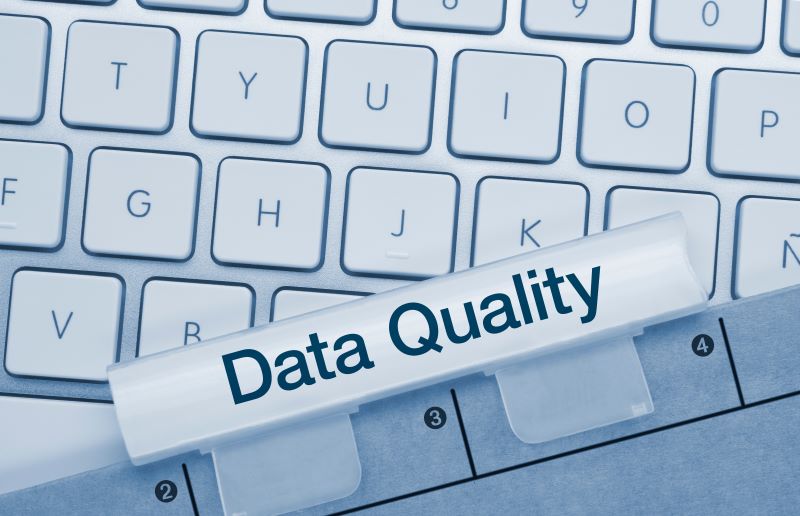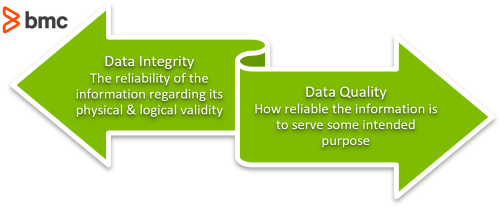Data is one of an organization’s most valuable assets, but it must be reliable and usable. Otherwise, it’s only in the way. Inevitably, the discussion of data integrity and data quality follows.

What Is Data Quality?
Quality refers to reliability, accuracy, and consistency. Integrity represents the dataset’s totality, correctness, and trustworthiness over its life cycle. Integrity goes beyond quality. It ensures context and maintains standards governing how data is accessed, entered, edited, stored, and utilized.
A mail carrier analogy from Data reliability company Monte Carlo applies. Data quality checks that it is the correct letter, clear and understandable, arrives exactly when needed, and follows a consistent format. Data integrity ensures the letter gets from point A to point B with no content changed.
Maintaining the highest data integrity standards protects against unauthorized access or modification. Also, it ensures GDPR compliance and increases the speed and ease of data recovery in the event of unplanned downtime.

What Is Data Integrity?
Data integrity is the backbone of the LMS and GEM xOps microservices. Each day, our data integrity team pushes the boundaries of automation, testing, AI, and ML for our partners in the name of the guest experience.
It is constantly monitoring, checking, and looking into the future. Occasionally, routine issues arise with a guest’s data, warranting a look to match the information already in the database. Typically, it resolves in seconds.
“We take ownership,” says LMS Manager of Data Integrity Joshua Joseph. “It isn’t waiting for someone to respond or find a solution to a potential issue. We chase the issue and address it immediately so it won’t affect any of our guests in the future. That’s the LMS way of working.” Our data integrity team averts potential issues through data testing. Testing enables them to protect guest data as much as six months to a year before the booking date.

How Is It Secure?
Data security is another component of data integrity. Simply put, it encompasses the collective measures used to protect a database.
“We accurately and consistently validate guest data to ensure the reliability of data stored and processed between the multitude of microservices that make up our architecture,” LMS Senior Applications Support Analyst Carlos Sarmiento explains. “By ensuring accuracy, we can verify that the expected real-world results are accurately represented for all guests. Additionally, we consistently maintain a level of testing to further ensure that the data is accurately updated and remains reliable and uncorrupted.”
The Difference Between Data Integrity Further Explained
Software company BMC offers the following graphic differentiating data integrity from quality:

“Data quality is directly linked to the quality of decision making,” says Melody Chien, Senior Director Analyst at Gartner. “Good quality data provides better leads, better understanding of customers, and better customer relationships. Quality is a competitive advantage that D&A leaders need to improve upon continuously.”
Quality of data is about how well data serves its purpose. It includes accuracy, completeness, consistency, timeliness, and relevance. Data integrity keeps it in check, protecting against access without authorization.
Clean, Accurate, and Disparate Data
Many organizations possess an abundance of data without realizing what they have. It may even be a hindrance until a partner can turn it into an asset. LMS and its subsidiaries credit decades of maintaining data quality and integrity for the success of our partners.
Clean, accurate, and disparate data working within one ecosystem is a phrase we invoke to describe our use of data at scale. Your data is your history and tells your story. It is an asset waiting to happen.

IBM identifies the following data integrity standards working in tandem to:
Validate data and input
Remove duplicate data
Provide data backups and ensure business continuity
Safeguard data via access controls
Maintain an audit trail for accountability and compliance
